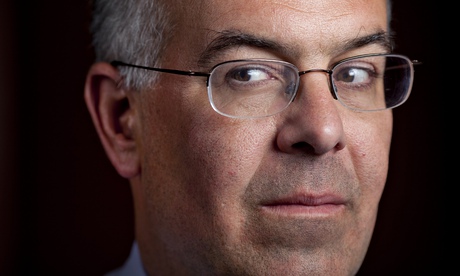
David Brooks is a conservative columnist for the New York Times and a broadcaster. He tells us in The Road to Character that he has a “natural disposition to shallowness”. At full mea culpa throttle, he adds that he is paid to be, “a narcissistic blow hard… I have to work harder than most people to avoid a life of smug superficiality”. In this book, at least, his struggle is less than successful. Brooks is a wealthy high achiever and – if this book is any guide – he doesn’t like himself very much. He dislikes the narcissistic society, “The Big Me”, of which he is a part, even more. So he wrote the book to reach for something more than happiness, he tells us, with an ironic touch of the self-centred, “to save my soul”.
The Road to Character is confused and contradictory. Brooks berates the lack of an inner life, in a culture in which he says, “the competition to succeed and win admiration is so fierce that it becomes all-consuming”. He argues we need “humility, sympathy, honest self-confrontation” to build character. His quest is to identify the virtues that help an individual to become “deep… rooted in something spiritual and permanent”.
Brooks portrays several historical figures marked by “selflessness, generosity and self sacrifice”. They include Ida Eisenhower, mother of Dwight, and the extraordinary Frances Perkins, the first woman appointed to a cabinet post (by Franklin Roosevelt) in US history. She dedicated her life to workers’ rights after watching, powerless, as 47 people plunged to their death in 1911, following a fire in New York in the Triangle shirt factory. Brooks’s theory is that we read about the lives of people of character, and then we emulate. “We admire… and bend our lives to mimic theirs.” Well, possibly.
Brooks’s starting point is The Lonely Man of Faith by Rabbi Joseph B Soloveitchik, published in 1965. He says there are two sides of our nature, Adam 1 and Adam 2 (Eve doesn’t get a look in and Brooks has little interest in the notion that “character” might be gender-sensitive.) Adam 1 is stuffed with “resumé virtues” (as in curriculum vitae). Adam 1 wants to build, create, produce, win and appear high status. Adam 2 has the “eulogy virtues” – the warm remarks said over our coffin that enable a person to “do good and be good”. Adam 2 knows that “in order to fulfil yourself, you have to forget yourself. In order to find yourself, you have to lose yourself”. The two Adams are always in conflict.
While popular (western?) culture tells us how to win and get ahead, there is little attention paid to one’s spiritual and moral character. Brooks’s book is a kind of self-help Oprah in the pulpit. However, having spent nine chapters endorsing the self-effacing, quiet, spiritual inner life, Brooks then ends his book, thanking his young researcher. He writes: “I wait with a sort of awed anticipation to see what kind of mark she leaves on the world.” Adam 1 can be so difficult to shake off.
For centuries, interest in what constitutes good and bad character has waxed and waned. Currently, Westminster’s all-party parliamentary group on social mobility has published several excellent papers on character and resilience and called for a “national conversation”. Economist James Heckman has demonstrated how noncognitive “soft skills” – including deferred gratification, self-discipline, application, resilience, and reflectiveness also often regarded as constituent parts of character – may allow an individual to do better than his or her peer with a high IQ but poor noncognitive skills. Character counts, but is it innate, can it be taught or is it best acquired experientially?
Brooks suggests that handy tools in the forging of character include suffering, love, humility, vocation and obedience. “Character is a set of dispositions, desires and habits that are slowly engraved during the struggle against your own weakness,” he writes. His world is one in which he assumes acclaim and material wealth is everyone’s moral dilemma. Any reference to how economics – the lack of money or status – shapes character is myopically absent. Richard Sennett, in The Corrosion of Character (1998), presciently argued that increased insecurity in employment inevitably impacts on character.
John M Doris, in Lack of Character (2002), challenges assumptions about character that date back to Aristotle. Circumstance – the situation – can influence what people do, whatever character they appear to have. He quotes one study in which only 11% of people stopped to help a man who had dropped his books when there was also the loud sound of a lawn mower. Eighty per cent stopped to help when there was no noise. From Aristotle through Hume, Nietzsche and others, Doris points out, “discourse of character often plays against a background of social stratification and elitism”. Those deemed to be of character are also the “noble”, wealthy and “higher type”. Don’t the rich have enough privileges without claiming good character for themselves too?
The Road to Character is published by Allen Lane (£17.99). Click here to buy it for £14.39

